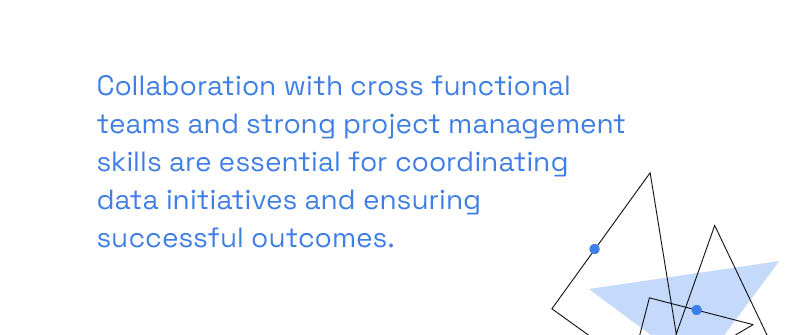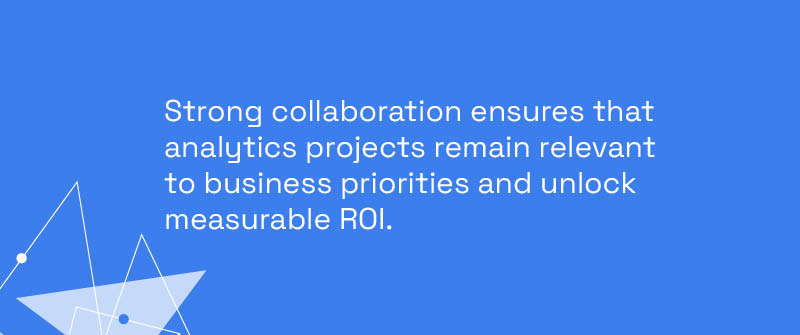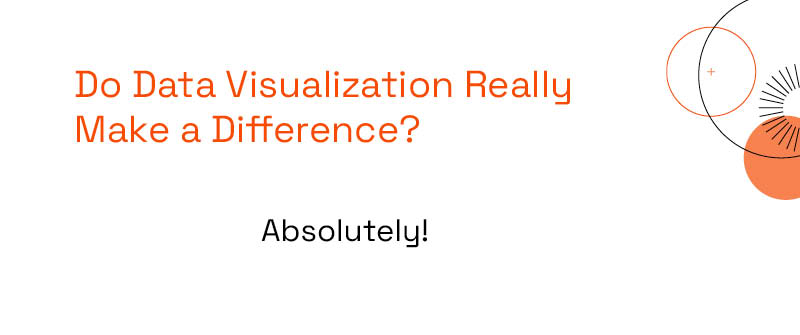
What Does a Data Consultant Do?
Data consultants are the linchpins between technical data operations and strategic business impact. Essential skills for data consultants include a blend of technical skills—such as data modeling, data pipelines, understanding data structures, and data analysis—as well as soft skills like communication, problem-solving, and stakeholder management. At their core, they don’t just crunch numbers—they translate those numbers into insights poised for the boardroom, empowering executive decision-makers to drive growth, mitigate risk, and leap ahead of their competition. These professionals act as both Power BI consultants and strategic advisors, tailoring modern business intelligence solutions to match an organization’s ambitions, no matter the complexity of its data ecosystem.
To bridge the ever-widening gap between raw data and strategic business value, data consultants do much more than create dashboards. They architect the infrastructure—think robust data models, precise ETL workflows, efficient data pipelines, and seamless integrations with platforms like Microsoft Fabric, all built upon a strong understanding of data structures. With data strategy services tailored to each industry, they don’t just help organizations spot opportunities; they ensure leaders act quickly and confidently on those opportunities. Data management, data governance, data quality, and data integrity are critical in ensuring that business intelligence solutions are reliable, accurate, and actionable. Every engagement seeks to answer a fundamental question: Does your data strategy steer your business toward its stated goals, or does it just generate reports that get lost in the inbox?
Consultants like those at P3 Adaptive elevate data from being a technical afterthought to becoming a strategic weapon. This transformation happens by guiding organizations on maximizing ROI from analytics investments. For example, the selection and implementation of the right tools—Power BI, Fabric, and others—is never about the bells and whistles, but about what accelerates real business outcomes. As industry disruptors, these consultants bring advisory skills far beyond the job description, championing alignment between high-impact analytics and C-suite vision. Data science and business analytics are key areas of expertise for data consultants, enabling them to develop predictive models and deliver strategic insights that drive organizational performance.
From crafting intuitive dashboards to hosting training sessions that empower every stakeholder (not just the data geeks), data consultants ensure buy-in and cultural adoption at every level. They routinely challenge legacy thinking, sparking innovation that stretches well beyond the IT department. Collaboration with cross functional teams and strong project management skills are essential for coordinating data initiatives and ensuring successful outcomes. In short, a great data consultant makes sure your next transformation project isn’t about getting ‘better reports’—it’s about building long-term value and competitive edge. Many data consultants work in a variety of data consultant roles, including as data management consultants, across industries. A bachelor’s degree in computer science or a related data field is a common entry requirement for these positions. And that’s exactly what sets P3 Adaptive apart in the world of data consulting agencies.

What Is the Most Important Skill for a Consultant?
The most important skill for a consultant is exceptional communication, specifically, the ability to translate complex technical data and analytics into clear business priorities that drive strategic decision-making. While technical prowess and analytical acumen are essential, it’s the art of communicating and aligning with business stakeholders that separates a consultant from a technical implementer. High-impact consultants don’t speak in acronyms; they speak the language of business value, ensuring that every insight resonates with the executive suite. Strong collaboration skills are also essential, enabling consultants to work effectively with cross-functional teams and stakeholders to build trust and ensure alignment of data initiatives across the organization.
Too often, data and analytics live in silos, locked away behind jargon and dashboards that only the IT crowd truly understands. Exceptional communication breaks down these barriers, empowering business leaders to use data proactively instead of reactively. A great data consultant, like those at P3 Adaptive, doesn’t just provide analysis—they spark change. They listen obsessively, ask probing questions, and ensure everyone at the table—from operations to finance—sees how data serves the big-picture strategy.
Of course, communication is more than just talking; it’s active listening and curiosity. Every successful engagement starts with consultants who dig deep, uncovering the real business problems beneath the surface requests. By doing so, they can challenge assumptions, reframe problems in strategic terms, and connect the dots between siloed data and unified organizational goals. Critical thinking and problem solving skills are key here, enabling consultants to evaluate complex challenges, develop innovative solutions, and support ethical decision-making.
But communication isn’t a solo act. Effective consultants are facilitators, consensus-builders, and occasionally, strategic translators. They manage stakeholder expectations, navigate company politics, and, most crucially, drive buy-in for data-driven change. Whether it’s guiding leadership through a digital transformation with Power BI or partnering closely to implement Microsoft Fabric solutions, the ability to align data initiatives with business outcomes creates measurable ROI and lasting transformation.
How Does Strategic Communication Affect Business Outcomes?
Strategic communication enables consultants to bridge the disconnect between technical teams and business leaders, fostering a shared vision for what success looks like. By translating analytical discoveries into compelling narratives, consultants ensure that actionable insights and data findings are effectively communicated to stakeholders to drive business outcomes—and are acted on. P3 Adaptive’s consultants frequently turn months of stalled data initiatives into breakthrough wins in just weeks, simply by facilitating clarity and alignment.
Why Is Business Acumen Critical for a Data Consultant?
Business acumen is the secret sauce that transforms raw data into enterprise value. Business intelligence consultants with deep business insight and strong domain knowledge understand the competitive landscape, recognize industry-specific challenges, and can forecast how analytics will impact revenue, risk, and growth. Domain knowledge is essential for delivering relevant and impactful analytics, as it enables consultants to interpret data within the proper context and provide actionable recommendations. This skill allows them to not only solve the problem the client asks for but to uncover the larger opportunities hiding beneath. At P3 Adaptive, business acumen means your organization doesn’t just get another set of reports—you gain a trusted strategic partner.
What Are the Top 3 Soft Skills for a Data Analyst?
For data analysts to excel—especially those striving to make the leap into strategic data consulting—three soft skills stand out as mission-critical: collaboration, adaptability, and problem-solving. While technical expertise unlocks the door, strong technical abilities form the foundation that enables analysts to fully leverage their soft skills. It’s these human-centric capabilities that drive analytics from back-office number crunching to boardroom impact. Put simply, effective analysts don’t just run the numbers; they influence outcomes by connecting with people across the organization, thinking on their feet, and tackling unfamiliar challenges with ingenuity.
Collaboration: Building Bridges Across Teams
In today’s interconnected business environment, team collaboration isn’t optional—it’s essential. The most valuable data professionals are those who can engage with marketing, finance, operations, and IT, as well as collaborate with various data roles across the organization, such as data consultants and other data analysts, to synthesize disparate perspectives. They thrive on connecting dots between specialized silos and transforming data into insights that matter to every stakeholder at the table. When a data analyst can credibly engage with the finance folks one moment and translate requirements for the IT team the next, analytics becomes a catalyst for alignment, not just another report in the inbox.
Why Collaboration Matters for Leaders
Strong collaboration ensures that analytics projects remain relevant to business priorities and unlock measurable ROI. For business leaders and executives, analysts who cross boundaries bring clarity—and often, consensus—on tricky, cross-functional decisions. This culture of cooperation paves the way for strategic wins, not just isolated improvements.

Adaptability: Thriving Amidst Change
The pace of change in technology—and in business objectives—means today’s data analyst needs more than mastery of yesterday’s tools. Adaptability is the superpower that allows analysts to move gracefully between deep technical dives and broader, executive-level conversations. Whether wrestling with a tricky data cleanup in Power BI or pivoting to a surprise C-suite request, adaptable analysts navigate shifting priorities without missing a beat.
Strategic Advantage of Adaptability
For leaders, adaptable analysts are the ones who ensure valuable insights are always on hand, regardless of unforeseen data detours or last-minute business pivots. They help your organization stay one step ahead, not mired in yesterday’s reporting logic.
Problem-Solving: Tackling Ambiguity Head-On
While technical prowess is important, true business impact comes from an analyst’s ability to thrive in ambiguity. The best analysts don’t just wait for perfectly defined problems—they probe, clarify, and frame messy business puzzles as elegant data solutions. This talent for structured problem-solving is crucial, especially when analyzing and interpreting complex data sets, transforming questions like “Why are sales down?” into actionable analyses that fuel better decisions.
Enabling a Data-Driven Culture
A problem-solving mindset turns uncertainty into opportunity. Business leaders benefit from analysts who don’t shy away from grey areas but instead illuminate them, driving your organization toward a proactive, data-first mindset from the ground up.
At P3 Adaptive, we champion data professionals who exemplify these soft skills alongside their technical chops. Whether you’re evaluating new analytics hires or choosing a data consultant company, prioritize partners who build bridges, think flexibly, and tackle business challenges with confidence. In the era of Power BI and Microsoft Fabric, the right human touch makes all the difference for sustainable, strategic success.
What Are the Three Key Skills Required for a Data Analyst?
Success as a data analyst—and by extension, as a strategic data consultant—hinges on three foundational skills: data wrangling, analytical expertise, and data visualization. Analyzing data, performing data analysis, and leveraging analytics software are foundational to these roles, enabling professionals to interpret information and drive impactful decisions. These form the unshakeable bedrock upon which rockstar business intelligence solutions are built, ensuring that raw information not only makes sense but also drives business growth and agility. Mastering these skills doesn’t just set analysts apart; it prepares business leaders to unlock the true ROI of their analytics investments, especially when harnessing state-of-the-art platforms like Power BI and Microsoft Fabric.
Data Wrangling: Transform Chaos into Opportunity
Data wrangling is the art and science of molding disparate, messy data sources into reliable, analysis-ready assets. A modern Power BI consultant leverages tools like Power Query—a relentless workhorse for data cleaning, transformation, and ETL—ensuring every metric on a dashboard is trustworthy. From syncing scattered Excel sheets to integrating enterprise systems, data wrangling eliminates errors and delivers consistent, unified views. For executives, this translates into confidence in every report—no more gut-wrenching surprises from inaccurate figures at the boardroom table.
Analytical Expertise: Move Beyond Surface-Level Reporting
Once your data is clean, you need razor-sharp analytical expertise to extract meaningful insights. This includes crafting the right KPIs, developing advanced DAX calculations, and architecting dynamic data models. A consultant’s deep knowledge of business logic—married with technical prowess—ensures that hidden trends, risks, and opportunities rise to the surface. The outcome? Your organization spots issues and opportunities faster than the competition, transforming analytics from a reactive reporting function to a proactive strategy engine.
Data Visualization: Bring Stories to Life
Data visualization is more than chart-making; it’s about cutting through the static and making insights unmistakably clear. Effective analysts build intuitive, interactive reports—whether in Power BI, Microsoft Fabric, or other platforms—that draw decision-makers directly to the actions that matter. Forget walls of numbers; imagine sleek, real-time dashboards that spotlight outliers, trends, and targets at a glance. C-suite and operations leaders don’t just see their data—they instantly recognize what’s working and where course correction is needed, driving agility and competitive advantage.
Do These Skills Really Make a Difference?
Absolutely. Organizations that invest in these core data consultant skills and technical acumen (with support from partners like P3 Adaptive) escape the gravity well of static spreadsheets and legacy reports. Instead, they win with nimble, trustworthy insights, translating to improved decision-making, stronger forecasting, and a laser focus on business value. For leaders, mastering these three pillars isn’t optional; it’s the ticket to thriving in a data-saturated, fiercely competitive world.

How Can a Data Consultant Deliver Strategic Value to Organizations?
Unlocking true strategic value from your organization’s data isn’t just about dashboards and reports—it’s about transforming your entire approach to decision-making. Data consultants enable data-driven decision making by helping organizations leverage data insights to guide their strategies and improve outcomes. Experienced data consultants, like the team at P3 Adaptive, don’t parachute in with cookie-cutter solutions. Instead, they diagnose your unique business challenges and tailor analytic solutions—leveraging tools like Power BI and integrated Microsoft Fabric platforms—to drive lasting impact. This strategic focus ensures that every insight supports your business decisions and aligns with your executive priorities, maximizing both ROI and competitive differentiation.
How Do Data Consultants Enable Rapid, Value-Driven Transformation?
Data consultants cut through the inertia of legacy reporting cycles, delivering rapid wins that fuel momentum for broader business transformation. Rather than getting lost in endless development phases, they move quickly to redesign critical reporting, automate manual processes, and prove value within weeks, not quarters. Their expertise with solutions like Power BI and Microsoft Fabric means you see actionable insights sooner, accelerating executive buy-in and inspiring teams at every level to embrace a data-first culture.
What Steps Do Consultants Take to Embed a Data-Driven Culture?
While great dashboards are a start, sustainable change comes from cultivating a data-driven culture. Skilled consultants go beyond technical delivery, providing ongoing training and support to develop in-house talent. They facilitate collaboration between business units, demystifying analytics for everyone from finance to operations, so every department acts on insights, not gut instinct. By encouraging experimentation and measured risk-taking, consultants help organizations adapt to market shifts with agility.
How Do Consultants Ensure Leadership Gets Value from Insights?
For business leaders and executives, the final piece is turning data into real-world outcomes: improved margins, smarter resource allocation, and stronger market positioning. Consultants ensure that C-suite leaders not only receive bespoke insights tailored to their KPIs but also know how to act decisively on them. Enabling every leader to connect the dots from data to action, they help organizations outpace competitors—and become their industry’s blueprint for data-driven success.
Ready to make your data work as hard as you do? With P3 Adaptive as your strategic partner, you’ll unlock not just analytic tools but a transformation that empowers every leader in the organization. Strategic data consulting is more than a service—it’s your competitive edge.
Conclusion: Building Data Consulting Capabilities for the Future
The future of business intelligence isn’t about simply hiring a skilled data consultant—it’s about investing in adaptable, forward-thinking capabilities that transform how your organization approaches strategic decision-making. As the data consulting field experiences rapid growth, there are clear career paths available, from entry level positions such as junior data analysts to senior consultancy roles. In a world where data is everywhere, but actionable insight remains elusive, the most successful companies are those that merge technical know-how with agile business acumen. The role of the data consultant has expanded dramatically: no longer are they just dashboard builders, but architects of data-driven strategy who can connect the dots between today’s business needs and tomorrow’s opportunities.
To truly unlock value, business leaders must look for partners who demonstrate a balanced mastery of business intelligence skills, acute data consultant skills honed across industries, and the soft skills necessary to drive culture change from the boardroom to the front line. Attending industry events is also crucial for professional development and networking within the data consulting sector. For those looking to start or advance their journey, free data analytics resources, such as a free data analytics course, offer accessible ways to gain essential skills and knowledge in the field. Effective data consultants are storytellers of information, translators between IT and the C-suite, and diplomats who bring structure to chaos. They continuously evolve—adopting the latest analytics tools, cloud platforms like Microsoft Fabric, and best practices to ensure your company isn’t just keeping up, but staying ahead.

Why Consulting Experience Across Industries Matters
In today’s market, having multi-sector experience is a force multiplier for any Data Consultant company. Cross-industry know-how brings fresh perspectives to familiar challenges and allows consultants to integrate strategies tailored to different business environments. This experience enables consultants to recommend solutions that are both effective and flexible, making them indispensable for organizations seeking to future-proof their analytics and decision-making capabilities.
Should You Invest in Consulting for Your Organization?
Ultimately, the question isn’t whether to invest in data analytics—it’s about who you trust to help you realize actionable insights from your investments. Collaborating with high-impact partners like P3 Adaptive not only fills immediate skills gaps but also catalyzes sustainable growth through ongoing training, tailored Power BI and Microsoft Fabric integration, and a relentless focus on quantifiable business results. The right consultants move beyond projects; they become trusted allies invested in your long-term success.
Are you ready to step decisively out of spreadsheet chaos and into a new era of business clarity? With P3 Adaptive, you gain more than technical support—you secure a confident partner in your pursuit of data-driven leadership and innovation. Don’t settle for uninspired reporting or missed opportunities; let us help you sculpt your data landscape into a strategic asset. Propel your organization forward by partnering with consultants who champion agility, insight, and measurable results—so you can steer your business with vision and certainty.
Get in touch with a P3 team member